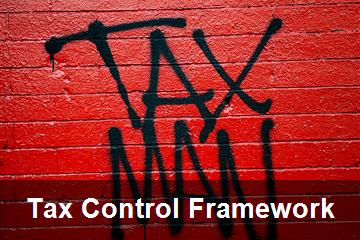
18 set 2024
The recent legislative changes introduced by Legislative Decree 108/2024 have brought significant improvements for companies opting to adopt the Tax Control Framework (TCF) voluntarily.
These enhancements include the elimination of administrative penalties and the prevention of criminal charges for certain tax violations, provided they are communicated in advance through a formal query.
However, the full implementation of these benefits is contingent upon the issuance of a ministerial decree detailing the application procedures.
The TCF not only aligns with corporate governance and internal control systems but also promotes sustainability, making it a valuable tool for SMEs and professional firms.
Despite its potential, the lack of specific implementation guidelines remains a critical hurdle.
The introduction of Legislative Decree 108/2024 has brought a wave of positive changes for businesses considering the voluntary adoption of the Tax Control Framework (TCF). This framework, which integrates into the broader corporate governance and internal control systems, aims to enhance tax compliance while promoting sustainability.
However, the full realization of these benefits hinges on the issuance of a ministerial decree that will outline the specific application procedures.
One of the most significant improvements under the new decree is the elimination of administrative penalties for tax risks communicated through a formal query before the submission of tax returns or the expiration of a deadline.
This applies as long as the taxpayer's behavior aligns with the information provided in the query.
Additionally, for non-fraudulent cases, violations of tax regulations that are preemptively communicated to the tax authorities will not result in criminal charges under Article 4 of Legislative Decree 74/2000, provided the taxpayer's actions match the details in the query.
The voluntary adoption of the TCF is particularly relevant for entities that do not meet the size thresholds required for cooperative compliance.
These thresholds are set at a minimum turnover of 750 million euros from 2024, reducing to 500 million euros by 2026, and further to 100 million euros by 2028.
For these smaller entities, the TCF offers a pathway to enhanced tax compliance and governance without the stringent requirements of cooperative compliance.
Moreover, the TCF can serve as a catalyst for broader sustainability initiatives.
Small and medium-sized enterprises (SMEs) are increasingly facing demands from banks and clients to address sustainability across environmental, social, and governance (ESG) dimensions.
By adopting the TCF, these businesses can demonstrate their commitment to managing tax risks, which is a critical component of overall sustainability.
This, in turn, can drive greater awareness and implementation of adequate organizational structures, which many SMEs have yet to fully embrace.
For professional firms, the TCF presents an opportunity to expand their advisory services beyond traditional audit and certification roles.
By assisting clients in implementing the TCF, these firms can offer valuable expertise in tax risk management and corporate governance, thereby differentiating themselves in a competitive market.
Despite these promising developments, the voluntary adoption of the TCF is currently hampered by the absence of specific implementation guidelines.
The legislative framework stipulates that a ministerial decree must be issued to define the application procedures for the TCF. However, no deadline has been set for the issuance of this decree, leaving businesses in a state of uncertainty.
Critical Aspects and Potential Issues:
1. Implementation Delay: The lack of a ministerial decree specifying the application procedures for the TCF creates uncertainty and may delay the adoption of the framework by businesses.2. Complexity of Compliance: Smaller businesses may find it challenging to navigate the complexities of the TCF without clear guidelines and support.
3. Integration with Existing Systems: Companies may face difficulties integrating the TCF with their existing corporate governance and internal control systems.
Common Pitfalls and Errors:
1. Miscommunication of Tax Risks: Failing to accurately communicate tax risks in advance through a formal query can result in penalties and criminal charges.2. Inadequate Organizational Structures: Businesses that do not have adequate organizational structures in place may struggle to implement the TCF effectively.
3. Overlooking Sustainability: Companies that adopt the TCF solely for tax benefits without considering its broader implications for sustainability may miss out on its full potential.
In conclusion, while the Legislative Decree 108/2024 offers significant benefits for businesses adopting the TCF, the full realization of these advantages is contingent upon the issuance of a ministerial decree.
The TCF not only enhances tax compliance but also promotes sustainability, making it a valuable tool for SMEs and professional firms.
However, businesses must navigate the complexities of the framework and integrate it with their existing systems to fully leverage its potential.

